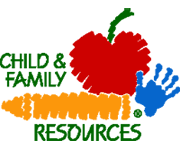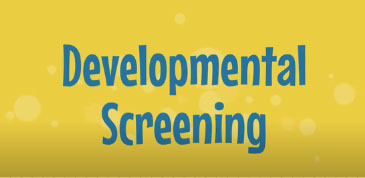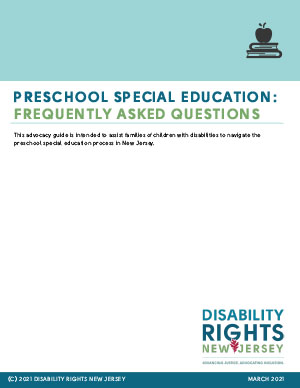 According to the Center on Social and Emotional Foundations for Early Learning, behavior is meaningful and communicates a message. Sometimes when children do not have an appropriate way to communicate a message (e.g., talking, signing, using picture symbols), they often resort to using challenging behavior (e.g., hitting, screaming, spitting) as a way to communicate to others what they want and need. Children engage in challenging behavior because it works for them! It works for them to send a powerful message, which results in the child obtaining something (e.g., attention, toy, food) or avoiding/escaping something or someone (e.g., a demand, attention, stimulation). READ MORE.
According to the Center on Social and Emotional Foundations for Early Learning, behavior is meaningful and communicates a message. Sometimes when children do not have an appropriate way to communicate a message (e.g., talking, signing, using picture symbols), they often resort to using challenging behavior (e.g., hitting, screaming, spitting) as a way to communicate to others what they want and need. Children engage in challenging behavior because it works for them! It works for them to send a powerful message, which results in the child obtaining something (e.g., attention, toy, food) or avoiding/escaping something or someone (e.g., a demand, attention, stimulation). READ MORE.
When parents register a child at a center, they must receive this Information to Parents document highlighting key information that must be made available, upon request, to parents about the center, including inspection and violation reports and a summary of any complaint made against the center.
As specified in the excerpt below, licensed child care centers must “Provide parents with a copy of the center’s policy on the expulsion of children from enrollment.” and “Post a copy of the center’s written statement of policy on the disciplining of children by staff members in a prominent location within the center, and make a copy of it available to parents upon request.
Resources
Policy Statement on Prevention of Suspension and Expulsion of Children Birth to Age Five from Early Childhood Programs – Click here for PDF.
Suspension and Expulsion Elimination Best Practices – Click here for PDF.
For information on up-to-date Child Care in New Jersey reporting and statistics, visit the NJ Department of Human Services website by clicking here.
Commonly Asked Questions About Child Care Centers And The American With Disabilities Act
Licensed Child Care Centers in New Jersey
In New Jersey, child care centers serving six or more children under the age of 13 must be licensed by DCF. A center becomes licensed after meeting all applicable conditions in the Manual of Requirements for Child Care Centers. Centers are licensed for a three-year period. A copy of the centers’ license must be displayed in a prominent location at the center. READ MORE.
3A:52-3.6 Information to Parents document
(a) The center shall give to the parent(s) of every enrolled child and to every staff
member, a written Information to Parents document designated by the Office of Licensing
and indicating that the center is required to:
- 1. Be licensed by the Office of Licensing, Department of Children and Families.
- 2. Comply with all applicable provisions of this chapter.
- 3. Post its license in a prominent location within the center.
- 4. Retain a current copy of this chapter and make it available for parents' review.
- 5. Indicate how parents can secure a copy of this chapter and obtain information about the licensing process from the Office of Licensing.
- 6. Make available to parents, upon request, the Office of Licensing's Life/Safety and Program Inspection/Violation and Complaint Investigation Summary report(s) on the center, as well as any letters of enforcement or other actions taken against the center during the center's current licensing period.
- 7. Post a listing or diagram of those rooms and areas that have been approved by the Office of Licensing for children's use.
- 8. Comply with the inspection and investigation functions of the Department, including the interviewing of staff members and children.
- 9. Afford parents the opportunity and time to review and discuss with the center director, sponsor, or sponsor representative any questions or concerns about the policies and procedures of the center or whether the center is in compliance with all applicable provisions of this chapter,
- 10. Advise parents that if they believe or suspect that the center is violating any requirement of this chapter, they may report such alleged violations to the center sponsor, sponsor representative, or director or to the Office of Licensing.
- 11. Afford parents of enrolled children an opportunity to participate in the center's operation and activities and to assist the center in complying with licensing requirements.
- 12. Afford parents of enrolled children the opportunity to visit the center at any time during the center's hours of operation to observe its operation and program activities without having to secure prior approval.
- 13. Provide parents with advance notice of any field trip, outing or special event involving the transportation of children away from the center, and, for each event, secure the written consent of the parent(s) before taking a child on such a field trip, outing or special event.
- 14. Post a copy of the center's written statement of policy on the disciplining of children by staff members in a prominent location within the center, and make a copy of it available to parents upon request;
- 15. Indicate, through this document, that any person who has reasonable cause to believe that a child has been or is being subjected to child abuse or neglect is required by N.J.S.A. 9:6-8.10 to report such allegations to the State Central Registry Hotline (1-877 NJ ABUSE/1-877-652-2873) immediately, and indicate that such reports may be made anonymously.
- 16. Indicate through this document how parents and staff members may secure information about child abuse and neglect from the Department.
- 17. Inform parents of the center's policy on the release of children. 18. Inform parents of the center's policy on administering medication and health care procedures.
- 19. Provide parents with a copy of the center's policy on management of communicable diseases.
- 20. Provide parents with a copy of the center’s policy on the expulsion of children from enrollment.
- 21. Inform parents that the center is required to provide reasonable accommodations for children and parents with disabilities and to comply with the New Jersey Law Against Discrimination (LAD), P.L. 1945, c. 169 (N.J.S.A. 10:5-1 et seq.), and the Americans with Disabilities Act (ADA), P.L. 101-336 (42 U.S.C. §§12101 et seq.), and indicate that anyone who believes the center is not in compliance with these laws may contact the Division on Civil Rights in the New Jersey Department of Law and Public Safety for information about filing an LAD claim at (609) 292-4605 (TTY users may dial 711 to reach the New Jersey Relay Operator and ask for (609) 292-7701), or may contact the United States Department of Justice for information about filing an ADA claim at (800) 514-0301 or (800) 514-0383
(TTY). - 22. Inform parents that the center is required to maintain and update, at least annually, a list from the Consumer Product Safety Commission (CPSC) regarding unsafe products and make the list available to staff and parents or provide parents with the CPSC website at www.cpsc.gov/Recalls.
(b) The center shall distribute a copy of the Information to Parents document to each child’s parent(s) upon enrollment and to every person upon becoming a staff member and secure and maintain on file a record of each parent’s and staff member’s signature attesting to receipt of the document.
1. The center shall maintain on file a copy of the Information to Parents document.
3A:52-6.6 Discipline
(a) The methods of guidance and discipline used shall:
- 1. Be positive.
- 2. Be consistent with the age and developmental needs of the children.
- 3. Lead to the child's ability to develop and maintain self-control.
(b) Staff members shall not discipline children for failing to eat or sleep or for soiling themselves.
(c) Staff shall not withhold active play time as a means of discipline unless the child's actions or behavior present a danger to themselves or others.
(d) Children may be removed from a group activity to another area, provided that the child so removed is either under the supervision of another staff member or continuously visible to a staff member.
(e) The center shall maintain on file a written policy on the disciplining of children by staff members. The policy shall: - 1. Reflect the provisions specified in (a) through (c) above and include the acceptable actions that a staff member may take when disciplining a child (that is, discussion with the child, time-out, etc…).
- 2. Be distributed to every staff member.
- 3. Be posted in a prominent location within the center.
(f) The center shall secure and maintain on file each staff member's signature, attesting to receipt of the policy on the disciplining of children by staff members.
(g) For school-age child care programs, the following shall apply: - 1. The center shall permit children to participate in the development of the discipline rules and procedures or
- 2. The center shall establish procedures to ensure that children are aware of the rules.
Registered Family Child Care Providers in New Jersey
New Jersey regulations limit home-based child care to no more than five day care children and a maximum of three children who live in the home. The maximum number of children a provider can care for in a family child care home is eight. READ MORE.
3A:54-4.9 Information to parents
(a) The sponsoring organization shall supply to providers sufficient copies of a written Information to Parents Statement designated by the Office of Licensing for the parents of all enrolled children. The Information to Parents Statement shall indicate that:
- 1. The provider has received a Certificate of Registration.
- 2. The provider is required to display the Certificate of Registration in a prominent location within the family child care home during its operating hours.
- 3. The provider is required to comply with all applicable requirements of the Manual of Requirements.
- 4. Parents may receive a copy of the Manual of Requirements by contacting the sponsoring organization.
- 5. Parents may report alleged violations of the Manual of Requirements to the sponsoring organization or to the Office of Licensing.
- 6. Any person who has reasonable cause to believe that a child enrolled in the family child care home has been or is being subjected to any kind of child abuse/neglect by any mperson, whether in the family child care home or not, is required by State law to report such allegations to the Department's State Central Registry at 1-877 NJ-ABUSE (1-877-652-2873). Such reports may be made anonymously.
- 7. Parents of enrolled children shall be permitted to visit the family child care home at any time when enrolled children are present without having to secure the prior approval of the provider. Parents may be restricted to visit only those areas of the home designated for family child care.
- 8. The operation of the family child care home is subject to monitoring by the sponsoring organization at least once every two years and by the Office of Licensing.
- 9. The provider is required to comply with the inspection/investigation functions of the sponsoring organization and the Office of Licensing, including the interviewing of adults and children in the family child care home.
- 10. Parents may request that the sponsoring organization provide technical assistance to the parent or the provider, and referrals to appropriate community resources.
- 11. The provider shall notify the parents in writing when a substitute or alternate provider will be caring for the children, unless there is an emergency on a particular day, in which case the provider shall verbally notify the parent.
- 12. The provider shall notify parents if weapons are present and explain precautions taken to ensure that they are inaccessible to the children.
(b) When an enrolled child has been identified as or is suspected of having a developmental delay or disability, the sponsoring organization shall: - 1. Inform the parent of the child's right to early intervention and special education services, if eligible.
- 2. For preschool special education services, refer the parent to the New Jersey Department of Education Project Child Find at 1-(800) 322-8174 (toll-free) in order to refer a child for an evaluation to determine eligibility, and if eligible, the development of an Individualized Education Plan to address the child's need for preschool education services.
- 3. Refer the parent of a child under 13 years of age with special health care needs to the New Jersey Department of Health, Special Child Health and Early Intervention Services Program at (609) 777-7778 for information about programs and services.
3A:54-6.20 Guidance and discipline
(a) The method of guidance and discipline used by the provider shall:
- 1. Be positive.
- 2. Be consistent with the age and needs of the child.
- 3. Help the child maintain self-control.
(b) The provider shall not subject a child to: - 1. Humiliating or frightening treatment.
- 2. Loud, profane or abusive language.
- 3. Derogatory remarks about the child or the child's family.
- 4. Spanking, hitting, kicking, biting, shaking or inflicting physical pain in any manner.
- 5. Deprivation of food, sleep, or toilet access.
- 6. Force feeding.
- 7. The withholding of emotional responses or attention.
- 8. Long periods of enforced silence.
- 9. Physical or chemical restraints.
- 10. Isolation in any area that cannot be seen and supervised by the provider.
(c) Napping, toilet training or eating shall not be associated with punishment.
(d) The provider and the child's parent(s) shall discuss and agree upon positive methods of discipline, in accordance with the provisions of (a), (b), and (c) above.
When choosing a child care provider:
• Ask to review the providers policy on the expulsion of children from enrollment.
• Ask to review the providers policy on the disciplining of children.
• Ask what training the provider and/or their staff have had related to guiding behavior.
Looking for Child Care? CLICK HERE.
Have additional questions? Our staff can help! Call 973-398-1730 x 186.
RESOURCES AVAILABLE FOR CHILD CARE PROVIDERS
Learn how to better care for babies and children (as well as yourself) through SEFI training and consultation.
The Socio-Emotional Formation Initiative (SEFI) supports the statewide integration of professional development opportunities aimed at promoting the social and emotional well-being and inclusion of all infants, toddlers, and young children with and without developmental, emotional and behavioral difficulties. SEFI, a grant-supported program of the Center for Autism and Early Childhood Mental Health at Montclair State University, approaches this work through the full continuum of promotion, prevention, and intervention efforts.
Socio-Emotional Formation Initiative (SEFI)
SEFI’s Keeping Babies and Children in Mind (KBCM) seven-part workshop series promotes positive development in young children by building the capacity of the multidisciplinary workforce serving infants, toddlers, young children and their families. For more information and to register, visit Training and Conferences.
To request specialized technical assistance in social emotional development and or inclusion in Grow NJ enrolled programs, please email: caecmh@montclair.edu
To request information about implementing the Pyramid Model for supporting social and emotional competence in infants and young children, please visit the New Jersey Pyramid Model Partnership.
The Four Building Blocks of HOPE are composed of key positive childhood experiences (PCEs). The sources of those experiences and opportunities are the foundation for healthy childhood development.
The HOPE Innovation Network (HIN) is a six-month program where cohorts of organizations across child and family serving sectors are trained on the implementation of the HOPE framework. HIN members identify, test, and disseminate practices that advance the use of the HOPE framework. Each cohort works on a different area of their organization to implement the HOPE framework in existing organizational policies and procedures. Child & Family Resources is proud to be part of the Network and partnered with their cohort program in 2023. Access to Resource Library here: https://positiveexperience.org/resources/
New Jersey Inclusive Child Care Project
New Jersey Inclusive Child Care Project
Professional development (English & Spanish) to early childhood professionals and parents on the laws that support inclusion.
Free trainings on-site to child care providers via teleconferences, webinars, online as well as in person
Free information about available services and resources in New Jersey for children with special needs
Free telephone technical assistance regarding early childhood and school-age inclusion using the toll free hotline and/or your local resource referral agency
Free on-site technical assistance and consultations for a limited number of programs
RESOURCES THAT YOU CAN START USING NOW TO PREVENT SUSPENSION AND EXPULSION
Children reach milestones in how they play, learn, speak, act, and move (crawling, walking, etc…). Children grow and learn at different rates. Monitoring your child’s development can be confusing even for the most attentive parent. Kids with learning, behavioral or development challenges need specialized care to the physically, cognitively, academically, socially and emotionally healthy.
Your child’s early development is a journey. Learn about developmental milestones and know what to look for along the way. For parents of children from birth to four years.
“When teachers screened positive for depression, they were expelling children at twice the rate”.
Mental health support for our early childhood workforce, and teachers everywhere, is critical to allow infants, toddlers and children to thrive.
Dr. Walter Gilliam, a leading light in early childhood development, discusses teacher stress and expulsion.





